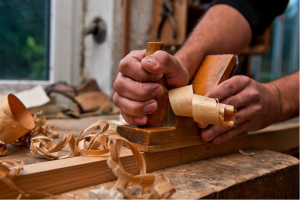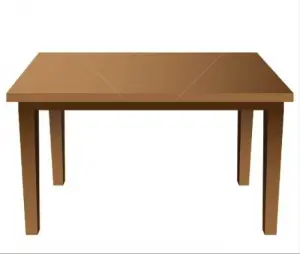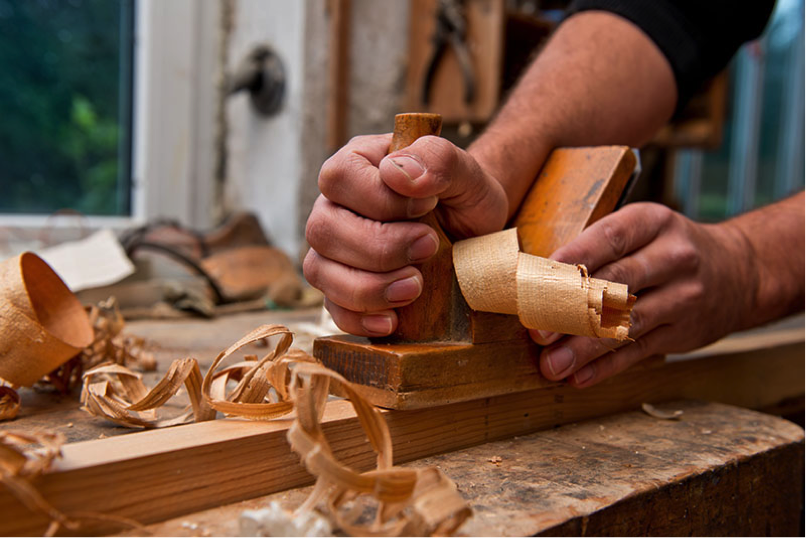
I am not a carpenter by profession. However, I have a strong desire for the carpentry work. I have a passion for the woodwork.
You cannot deny the fact that carpentry is a significant job and almost all the home needs it for some or other reason. Actually, it beautifies your home interior and brings comfort to your premises.
This guest post will show some tips for non-carpenters that can help you build your own stuff.
It’s all about the bare necessity of life. Can you imagine a living room without a chair to sit, or a kitchen without a cabinet, a garage without a wardrobe or a dining room without a table? Of course, buying furniture is a costly affair.
 In my opinion, it is a really a better idea to build your own furniture. While building your home furniture you can give it a customized design as per your choice and requirement. It will save money and satisfy your woodworking passion as well.
In my opinion, it is a really a better idea to build your own furniture. While building your home furniture you can give it a customized design as per your choice and requirement. It will save money and satisfy your woodworking passion as well.
So all you need is to learn some tips and tricks for building furniture. For me, building furniture is all about pleasure and joy. However, you need some necessary tools for the work.
Steps For a Woodworking Novice:
There is some manual and machine woodworking tool which can ease your work. Using the tools you will get a great perfection. This article will educate you regarding the easy steps to be followed to get a better-finished wood product of your preference.
Step One: Begin with a simple project
 If you are new to the woodworking niche then it is better to start with an easy job. Let’s take a task of making a simple coffee table. Begin the work. Make it simple. Do not go for a rounded, grooved or notched design. Here you should learn the basics of the carpentry skills. At first, you need to learn about cutting straight wood with correct measurements and joining two pieces of wood. Trying your hand out with small woodwork project is better as they are simple and inexpensive.
If you are new to the woodworking niche then it is better to start with an easy job. Let’s take a task of making a simple coffee table. Begin the work. Make it simple. Do not go for a rounded, grooved or notched design. Here you should learn the basics of the carpentry skills. At first, you need to learn about cutting straight wood with correct measurements and joining two pieces of wood. Trying your hand out with small woodwork project is better as they are simple and inexpensive.
Step Two: Get on the same page with your partner
Think, imagine and analyze the things. If at all you have a partner with you just discuss and try to be on the same page. It has been seen that two mind is better than one. So frame a good idea about the type and design of the furniture before starting the task. You can design it with your own preference. Some people are keen about the functionality while others appreciate good looks.
Step Three: Plan your own furniture
Planning is very important before starting any project. It gives you a clear step by step guide to finish your task. So here you can Google a little to identify a good design for your coffee table. with the help of a photo editor, you can take out the hard copy of the blueprint. This outline design can be used for correct dimensions and other measurements. Thus you can get a clear idea to fit the pieces together.
Step Four: Make an estimate
Estimate the quantity of wood and the other supplies you require for the project. Identify the wood type you need for making the table. Now you can run to a store to know the actual prices of the making materials. Make a budget for your project. Here you can know whether building a table at home will save your money. If you find everything good and it is a cost effective project for you then you can go ahead with your plan.
Step Five: Google for books and guides
As you are a newbie to the field you might not be aware of the best cutting method. So investigate a little in the area. You will get lots of online help regarding the cutting and measuring strategies. Further, you need to know about how the woodwork joints. Reading a user manual can help you out for sure.
Step Six: Measure twice before you cut
 Be careful, do not hasty. Measure the wood and check it once more before you cut it finally. If you cut a piece with the wrong measurement the whole wood will go waste. Always prefer to buy good and advanced tools available in the market. The machine tools you need at this stage are like a miter saw, circular saw, sanding machine, and the electric drill. Click here to enhance your woodworking skill through choosing the best tool for you.
Be careful, do not hasty. Measure the wood and check it once more before you cut it finally. If you cut a piece with the wrong measurement the whole wood will go waste. Always prefer to buy good and advanced tools available in the market. The machine tools you need at this stage are like a miter saw, circular saw, sanding machine, and the electric drill. Click here to enhance your woodworking skill through choosing the best tool for you.
At the final stage do not rush. Complete your finished product with utmost patience. Be ready to accept little faults as you are not a professional woodworker. Though not the perfect one but you made your first table. Be happy with your creation.

